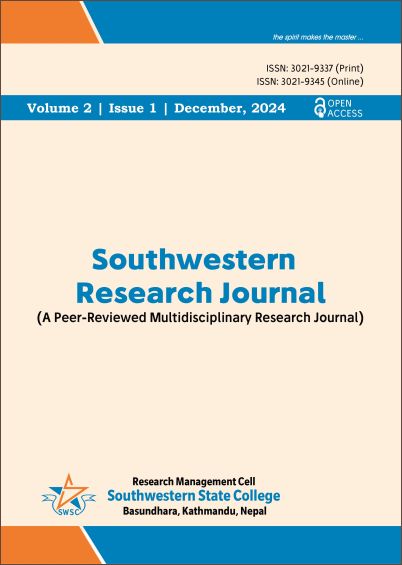Apocalyptic Reflections in Derrickson’s The Day the Earth Stood Still
DOI:
https://doi.org/10.3126/srj.v2i1.76773Keywords:
Anthropocentrism, apocalypse, coexistence, deep ecology, eco-criticism, extraterrestrialAbstract
This article makes an analysis of Scott Derrickson’s movie, The Day the Earth Stood Still, from eco-critical perspective focusing on the movie’s representation of apocalyptic future world as resulted by human encroachment into nature. Set against the backdrop of the contemporary New York City, the movie juxtaposes urban development with the natural world, highlighting the conflict between the two. Borrowing the eco-critical insights from Lawrence Buell, Val Plumwood, Keelin McNab, and Timothy Luke, this article explores how Derrickson critiques anthropocentrism. Derrickson, through his nature-loving protagonist Klaatu, advocates for the reconsideration of human attitudes towards nature. This article examines how Derrickson presents Klaatu advocating for nature conservation, warning humanity the possible dangers about to take place in the environment due to their anthropocentric treatment over nature, and appeals for human-nature reconciliation as it is the urgency of the world today.




